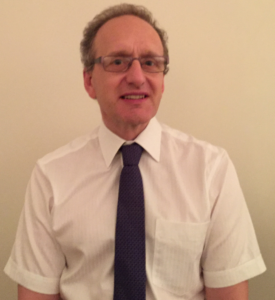 Susan Sontag’s Illness as Metaphor challenges the notion that we hold responsibility for the illnesses that afflict us. She states: “Theories that diseases are caused by mental states and can be cured by will power are always an index of how much is not understood about a disease.”
Susan Sontag’s Illness as Metaphor challenges the notion that we hold responsibility for the illnesses that afflict us. She states: “Theories that diseases are caused by mental states and can be cured by will power are always an index of how much is not understood about a disease.”
My own two episodes of serious illness forced me to explore this notion of responsibility and cure.
The first was over three years ago. I was a busy, full time consultant when I was unexpectedly diagnosed with bowel cancer. I had seven months of treatment before undergoing surgery that required a permanent colostomy. The treatment was first rate by the various NHS teams involved in my care. I was also given informed choice in regard to my treatment options. I made a phased return to work as a specialty doctor in the NHS and as a private associate psychiatrist. I organised psychological support and treatment for myself through my GP.
Then, just before a holiday, I had an episode of stress related psychosis. Symptoms—which I had never experienced before—became florid over 24 hours. I required my wife (a GP) to take me for three casualty assessments by the rapid assessment (RAID) team, and then to hospital for admission. Care by the three mental health teams—RAID, inpatient (IP), and early intervention service (EIS)—was uniformly excellent, and my wife and I were given time to reflect on treatment options. The hospital advocacy service and chaplaincy also played an important part in supporting me during my treatment and recovery.
The mixed psychiatry ward was calm, caring, and compassionate, despite staff shortages at times. Each day was often centred on smoking breaks and meal times. We would sit in a large octagonal smoking shelter overlooked by the wards, and reflect on this and that. The stories we told were often clear and focused, despite the presence of mental illness. There were themes of loss, regret, social and family disruption, and isolation, together with a perceived lack of fairness by society. There was also considerable humour and support within the group, including sometimes a clear demarcation between “us” as patients and “carers”—particularly psychiatrists who often “did not listen” to patient concerns.
I can’t say that either experience of serious illness was enjoyable, although I did learn more about myself and about patient experience than I could ever have gathered from books, workshops, or talking with patients.
I was struck by the difference in the charitable funding for cancer and mental health services, with cancer services receiving much more. Psychological aftercare, however, was more available to mental health patients, despite the impact of cancer on adaptive psychological functioning being high.
There was also a difference in my relationships with friends and work colleagues during these two episodes of illness. People were “shocked” that a mental illness had happened to me, and did not seem to know what to say. In contrast, the response I received after being diagnosed with cancer was supportive and understanding, and I was treated much like any other patient; there was more sympathy and acceptance, and more positive “fighting and battling” and “it’s not your fault” type narratives.
My perception is that despite our attempts to destigmatise mental illness, it continues to exist in spades. I believe I witnessed this: the discrepancy in charitable presence and funding on the wards; the reactions from others; the somewhat hidden, contrasting narratives that somehow mental illness “is your fault”; the surprise, anxiety, and even possibly fear that mental illness happened to me when it should not have, contrasted with the reaction to my cancer diagnosis.
The notion that mental illness is a weakness rather than an illness seems to run deep. Despite campaigns against stigma, society still sees mental illness as occurring to “others” rather than to “all of us.”
Susan Sontag summed this up: “Illness is not a metaphor, and the most truthful way of regarding illness—and the healthiest way of being ill—is one most purified of, most resistant to, metaphoric thinking.”
Leo Kroll trained as a paediatrician and then switched careers to psychiatry. He worked as a consultant for 20 years in Stockport and Salford, Manchester. He retired in 2015 and is now an associate specialist with a private multidisciplinary team, which provides clinical assessments for children and teenagers with suspected autistic spectrum condition and ADHD.
Competing interests: None declared.